Worried Your Partner Is Like Your Parent?
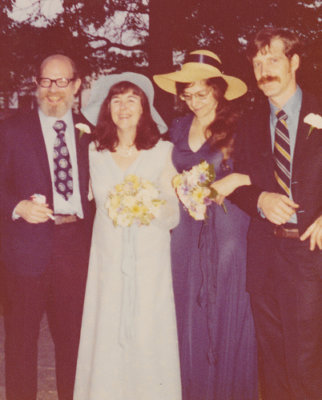
By: Schuyler Erle
by Andrea M. Darcy
Funny feeling the man you’ve started dating will get along a bit too well with your father? Married a woman and halfway through a fight it hits you that she is acting just like your mother?
One of the things that can often come up in therapy and couples counselling is the realisation that we have married or are dating someone who is just like one of our parents. It can feel a shock to the system and leave us dealing with a sense of embarrassment and shame.
But it shouldn’t. It’s inevitable that in one way or another we all choose partners like our mother or father. Our parents (or guardians if that is the case) were, after all, the role models we had for learning how to survive in the world. The family unit is where we learn our value system, how to relate to others, and our definition of what love is. If our parents had strong values and a long happy relationship, it’s more likely we’ll seek that from partners. The trouble comes, of course, when we are dating someone like our parents because there was a difficulty or trauma in our childhood with one of our parents that we have carried into adulthood.
What is it we might unconsciously seek in partners that replicates our parents?
1) We might seek similar physical traits.
If Dad had a round smiling face, that might be what we seek in a man. If our mother 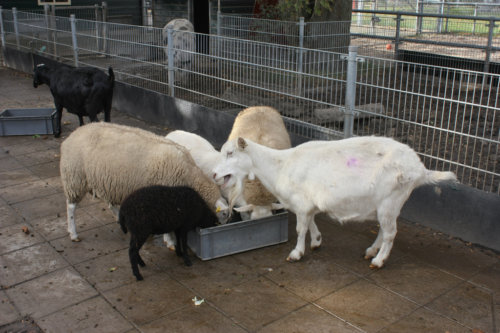 was pleasantly plump, we might be attracted to curvaceous women. This isn’t often a problem. It’s mostly down to the science of attraction or ‘sexual imprinting’, and it’s not even limited to humans- a study done at the Abraham Institute in Cambridge found that sheep raised with goat mothers preferred goats at adulthood and goats raised with sheep mothers preferred sheep at adulthood.
was pleasantly plump, we might be attracted to curvaceous women. This isn’t often a problem. It’s mostly down to the science of attraction or ‘sexual imprinting’, and it’s not even limited to humans- a study done at the Abraham Institute in Cambridge found that sheep raised with goat mothers preferred goats at adulthood and goats raised with sheep mothers preferred sheep at adulthood.
2) We might choose similar personality markers.
If one of our parents had a great sense of humour, we might be attracted to partners with one. Of course it can be a negative trait too- if we grew up with an angry controlling parent, then this can be a character trait we choose in partners despite ourselves. And this can definitely be a problem, leading into the next point-
2) We often unconsciously choose a partner who replicates the ROLE we had with our mother or father.
The cliché that heterosexual men date women like their mothers, and heterosexual 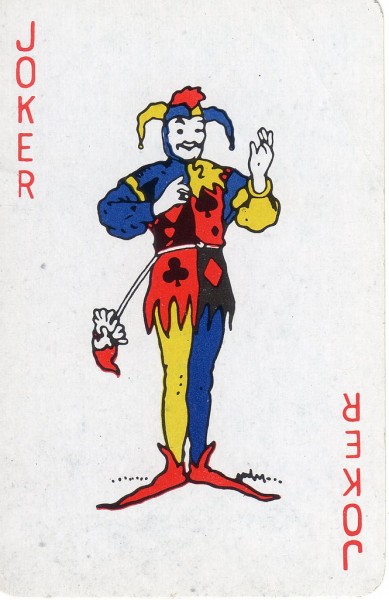 women choose men who are like their fathers, might hold true with physical traits and basic personality traits. But when it comes to the deeper patterns from our parents we are replicating within our romantic relationships- the ones that left unchecked can have us attracted to relationships that do us more harm than good- it has nothing to do with gender and everything to do with roles.
women choose men who are like their fathers, might hold true with physical traits and basic personality traits. But when it comes to the deeper patterns from our parents we are replicating within our romantic relationships- the ones that left unchecked can have us attracted to relationships that do us more harm than good- it has nothing to do with gender and everything to do with roles.
It’s the strongest role we played with a parent, the one that had the biggest effect on our sense of self, that we tend to repeat with our romantic partners. For example, if a little girl grew up with a mother who was always sad and the girl’s main role in the family was to be the joker always cheering Mother up, then that is the role she might seek to play with a partner. She will seek someone who is moody and make it her job to cheer him up, even if it leaves her depleted and feeling trapped. If a little boy had a father who constantly picked on him and blamed him for everything, he might choose a spouse who also makes him the scapegoat.
3) We seek the pain (or pleasure) we felt as a child.
If we constantly felt shamed, judged, or rejected by a parent, there’s a good chance we’ll seek a partner that shames, judges, or rejects us. Of course if we always felt unconditionally loved by a parent, that would be what we would look for in our partner.
But WHY would we choose a partner who replicates pain?
Why would we date a partner who was angry like our father? Controlling like our mother? Why would we marry someone who puts us in the same unhappy role that our parent did- the caretaker, the punching bag, the needy one? How can that make any sense?
Unfortunately, humans are creatures of habit. We tend to seek out what we are used to, our ‘comfort zone’, even if it’s something that makes us deeply unhappy. Most of the time this is not even a conscious choice, we just unconsciously gravitate to what we know. That is why therapy is so important- it gives us an outside perspective that can gently help us see ourselves in a new way. After all, we can’t change patterns in our lives if we can’t even see them.
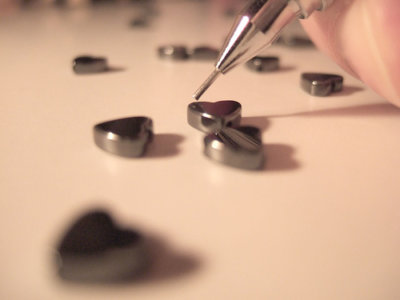
By: Jared Tarbell
We are also drawn to feel love, and we sometimes mistake the painful pattern for love. As a child we naturally want to love and be loved by our parents. If one of them has done something like shame or reject us we can take that shame or rejection on board as a form of love- we don’t know any better or have anything to compare it to. And we then can grow into adults who seek partners we think love us but actually shame and reject us.
We might be trying to heal ourselves. It is a theory that as humans we have an inbuilt drive to heal. That we keep repeating things until we get it right. There are of course many better ways to heal ourselves then put ourselves on an endless cycle of pain, therapy being one of them.
How can you tell if your relationship is just a childhood pattern on repeat?
Look back at where you felt rejected as a child. Did one of your parents abandon you? Was one of them never around, or unavailable due to an addiction to alcohol, drugs, affairs or overwork? Have you carried that rejection into adult relationships?
Look at what your parents did that made you feel shamed. Did your mother nag? Was your father constantly telling you you were annoying? Then look at your relationships. Are you replicating these patterns?
Try to identify your role(s) in your family unit. Were you the family clown? Why did you feel you needed to be funny? Were you the logical one, always making peace? Can you find those patterns in your present relationship?
(Of course you can also look at the good things from your childhood and match them to your relationships.)
So how does one stop a difficult “parent pattern”?
 Forget about blame.
Forget about blame.
There is no point in turning to either your present partner or your parent and picking fights or wanting them to offer up answers. Although it can temporarily feel good to pass responsibility to someone else, the truth is that we are the only ones who can change things in our lives and blaming others just causes more upset to deal with. We can’t control the actions of others, but we can choose our own actions, and choose ones that move us toward wholeness and happiness instead of more drama and pain.
(If you find you can’t stop taking our your new realisation on your partner, read our article on managing anger in relationships for some tips. You might also want to try journalling about your feelings as an outlet).
Allow Yourself to See the Positives, Too.
For those of us who have had hard childhoods it can be very easy to paint everything as horrible and get caught up in being a victim. The truth is that every childhood had some good moments, and taking time to recognise the positive things that happened and the strengths we gained from our parental relationship can be freeing. It can also help to remember that our parents were once children themselves, suffering their own set of issues with a mother and father.
Seek help.
A lot of patterning we replicate from childhood with our partners involves shame and rejection and these two things are not easy to deal with by ourselves. It’s in fact common to tell ourselves we have ‘figured it all out’ and ‘are fine now’ just so we can replicate the unhealthy pattern with another partner- shame and rejection can in their own way be quite addictive. Remember that a good therapist has the added benefit of giving you the experience of a trustworthy relationship that you might never have found with a parent.
But is it really worth making the comparison between your partner and your parents?
Unresolved issues with our parents can leave us unable to see if our parents have changed and grown over the years like we have. Dealing with our childhood patterns can sometimes allow us to finally have an adult relationship with our parents. It can also stop us from passing the same unhappy issue we had with our parent on to our child. Things like shame, rejection, and abuse run through generations, and you can choose to end the cycle.
And ultimately, dealing with any unresolved drama with your parents leaves you free to see partners for who they are, instead of what pain they trigger within you. This allows you to be available for a mature and fulfilling relationship at last.
Are you married to a ‘parent replica’ or dating one? Have an experience or advice you’d like to share? Join the conversation below, we love your comments!
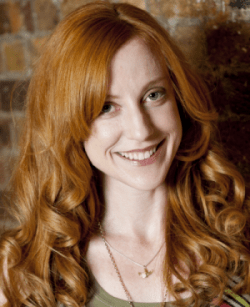 Andrea M. Darcy is a writer, author, and coach. Find her @am_darcy
Andrea M. Darcy is a writer, author, and coach. Find her @am_darcy





my husband blames me to be like his mother. He has many unresolved childhood wounds. I trigger memories from his past. How can i help him and make him to see the positive areas of me?
You can’t make anyone do anything. And you also cannot feel responsible if he is triggered. He has to take responsibility for his emotions and childhood. We’d recommend reading our article on how to suggest to a partner they could benefit from therapy http://bit.ly/partnertherapy. If he doesn’t want to go, then the only person you can work at changing here is yourself, and seeking therapy for yourself would also be a good idea. What made you choose a relationship with someone who only sees the negative in you? Where you feel you have to struggle to be appreciated?Do you have your own childhood patterns of low self-esteem? How could you now rebuild that sense of worth? These are all things a therapist can help you look at.
I just realised that I’m married to someone just like my dad. I dont know what to do. I’m very unhappy. I feel like we should separate for me to feel better. He’s told me numerous times he’s not going to change. What should I do?
Hi Takrada, sounds tough. We can’t tell anyone what to do without knowing them and working with them – life and people are complicated, telling someone what choice to make that would determine their future would be unprofessional and not helpful! If you had access to counselling, we’d say this is more than worthy of going to therapy about. Patterns from childhood can totally rule our lives otherwise. If you can’t get therapy, then we’d suggest that the best place to start is with yourself. Try journalling as a way to release old repressed memories and emotions about your father, for example. You’ll find that working on the father relationship might give you clarity or help create change in your relationship. http://bit.ly/journalmentalhealth
I’m married to someone like my dad. I grew up with my dad and two brothers and so, had to look after them. I had to cook and look after the house. My dad always travelled for work and was a busy university lecturer. He hardly spent time with us and we always communicated with him in writing notes. He was also very stick. He fell our with our mum and he never had anything to do with my mum even when she died. My dad also managed to stop all communications between our mother and my brothers. It was a tough childhood.
I’m now in an 18yrs tough marriage and I see a repliacnt of my childhood upbringing in my marriage. My husband is just like my dad . Our communication is not good, as I leave him to do what he wants to do, as I was never in any position to Express my feelings when growing up. I just accept things and that hurts. I’m in a situation where, I feel like leaving my marriage or stay and improve on our communication for the sake of the kids but unfortunately, there’s not intimate attraction.
What do I do?
Hi G, what do you want to do? Nobody else can tell you how to lead your life. It’s up to you, it’s your choice, there is no right or wrong, there is what you want. So what do you want from life? As for ‘the sake of the kids’, it’s an excuse we often hear. But children are astute. If a parent is unhappy, they know it, and it doesn’t benefit them. Children are also resilient, and tend to navigate change when they need to, better than the adults who claim they make certain decisions for their children. Have you considered therapy? We think working with a counsellor or therapist who creates a safe space for you to finally say what you really think and feel without fear of judgement would be very beneficial. Best, HT.
Hello: Thank you for the article above. It ihas been immensely helpful as i continue to work on these issues of what may have gotten carried over from childhood into adulthood and it seems like there was much. I am gay and feel that I have not been successful in the numerous “relationships” I’ve had. Three initimate partners died: two of AIDS and one from an aggressive cancer. Only this morning as I am meditating, using Reiki music as a background of healing did the thought arise: “my father was not satisfied with his relationship or marriage, or he wasn’t satisfied with “just one woman.” HIndsight now shows me that this is oe of the role I have played in my relationships as well, either choosing someone who ultimately wasn’t satisfied with me as a partner or with whom I wasn’t satisfied. . .alternately playihng father and mother roles? Oly this oring did I feel I am feeling feelings of rejection that have followed me through life, feeling that I am not worthy of a man’s love. . .my mother’s love was not unconditional. . .it seemed more out of obligation. My father died young, age 42, so there was never an opportunity to work this out with him; I was nine when he died. It also occurs to me that I have unconsciously chosen partners with whom I might resolve father issues. . .and maybe some mother issues. I feel the physical pain of this in my stomach; after “staying” emotionally connected to partnes until they died, I began asking the questions of why does htis keep happening, why can’t I find happiness and accord in relationships. I have had a wonderful mentor through much of my life and I am now 66. My mentor mentioned to me after my last partner passed that I was involved with a an who was a nicer version of my father. . .that stuck and struck a place deep in me. I have both negative and positive feelings about this final partner. . .I never felt secure with him fully. . .he was tall,handsome, white, sexually desirable and sometimes cunning. . .for a number of years we were in a transatlantic relationship and whenever he would leave I would been abandoned and rejected; I was also aware of his “other” affairs when he was absent .. .similar to my dad being aware, often with other women and I felt I just had to put up with it the way my mom put up with my dad’s infidelities. I comfronted my partner about this before he died, and let him know I was conerned about what this did to me and how it madeit difficult for me to trust and be fully engaged with him: I was often quite and withdrawn, which he often pointed out. At one point he said he never wanted to be separated again and so we weren’t, until he died and even at death, we were separated because of a visa glitch that required my returning to the US. I am grieving so many loses and fear that I will never be or have a healthy initimiate relationshiip or partnership; I even feel my body rejecting me for the ideations and fantasies of a fifteen year old inside of myself who never earned or knew what healthy relationships looked like (that is when I started acting out to some degree. More than you asked for I am sure, but maybe this will help someone else too? I have a good therapist, finally, and have for several years. Progress is slow but never the less, it is progress.
Winfred, losing three partners is tough. And losing your father at aged 9 is also tough. We’d say do cut yourself some slack. You are comparing yourself to a standard that doesn’t really exist. This standard of a perfect healthy relationship. Relationships are tough. Messy. Even people like therapists who know all about healthy relationships can still find themselves in messes. Perhaps it’s even the true nature of human relating. And that’s okay. It’s okay to make a mess in life. What matters is that we keep going, that we keep growing, and learning, and trying. You are doing that. You are working with mentors, with therapists, you are reaching constantly towards growth. So try to go easy on your good self. There is a sense you might need to let yourself express grief instead of mentally analysing it, is that possible? Analysing in the case of very intelligent people can actually be a coping mechanism– the second we get close to a big feeling we go into analysing, tricking ourselves into not actually fully feeling and letting go of the pain. There is also a sense of blame, that can keep the best of us trapped in cycles. For example, if we feel guilty, we can ‘punish’ ourselves by constantly choosing difficult relationships instead of letting ourselves be happy. We also have to accept that if we grew up having to earn love (your mother) or that love leaves (your father) those types of ‘love’ will feel like ‘home’. And a sturdy, caring relationship might feel boring, uncomfortable, for at least the beginning. What matters here is that you are showing self love. You are meditating, seeking support, questioning, seeking to learn. Let that sort of self love grow. Keep moving towards matters to you. We think the road ahead is not yet known and there is still time to find the support and acceptance you crave. Best, HT.
Hi. Since my teenage years I’ve consistantly picked men with problems. Most of the time it’s drugs and/or alcohol. My father was a cross addicted alcoholic. He spent 10 years in prison for vehicular manslaughter. He wasn’t a horrible father and taught me many useful life skills. He wasn’t abusive toward me but was to his girlfriends in front of me and my sisters. He always told us he loved us and I feel as though he did. Anyway, why do I keep picking addicts and how do I stop?
Hi!
I have been deep on my healing journey for about 2 years now and my past partner was like my mother so I focused mostly on my mother wound. Now that I have a new partner, I have realized that he has similar thought patterns as my dad and his personality is quite similar too (they both like each other very much). After this, I also realized that I still have to heal my father wound and I am wondering if its possible to heal that while staying with my current partner.
My father was often absent during my childhood due to overwork and at present I am having a long distance relationship with someone that works a lot too and this is definitely a pattern. The difference is that my partner makes time to call me everyday and he always shows up whenever I am having troubling times even though he works a lot. He is also vulnerable with his emotions and does his best understanding my triggers. My relationship with him is the healthiest I have had during my whole life and we are planning to get married. However, I want to make sure I am making the best decision by marrying him.
I had heard about this but never felt that my marriage resembles anything from childhood. However recently I have realised that my relationship with affair partner is similar to that with my father. They both have similar traits and the emotions which gets stirred up with AP are similar to that of father. After fathers death I could not wait to get in room with AP. Otherewise I can go months without meeting AP.
It has taken me many years to realise this. Now how to take this information ahead so that I can break it off with AP. Like knowing this is not giving me sense of relief or understanding of how to navigate it. The emotions which stir up are not even like bad conflict or feeling lonely but still they are there. The feeling is that he cannot understand me as I felt with my father growing up. I never felt unloved but felt that he does not get me aa an individual with different way of thinking. My spouse totally gets me, supports me in all endeavors, is biggest cheer leader and loves me to death. And yet I am unable to end it with AP. maybe I am with AP just to have the familiar feeling. There was no particular reason I sought out affair, AP is a person I would not even look twice but yet I was extremely attaracted towards him which was perplexing. Now I think I know why I did proposition him. I am still not sure of how to end things, I want to end it but I cant. There is no emotional involvement with AP and not meeting him does not trouble me. Although I still find myself going back to him.
Hi! A year into my marriage and I realized that my partner looks somewhat like my dad. I’m embarrassed I didn’t realize it sooner. My father is an awful person and my partner is the complete opposite of my father. Some days I see more facial similarities than others and then there are day where I don’t think or see a resemblance. It’s mortifying to me at times. I’m clueless as to handle this realization. I wouldn’t even know how to share this thoughts/worry.